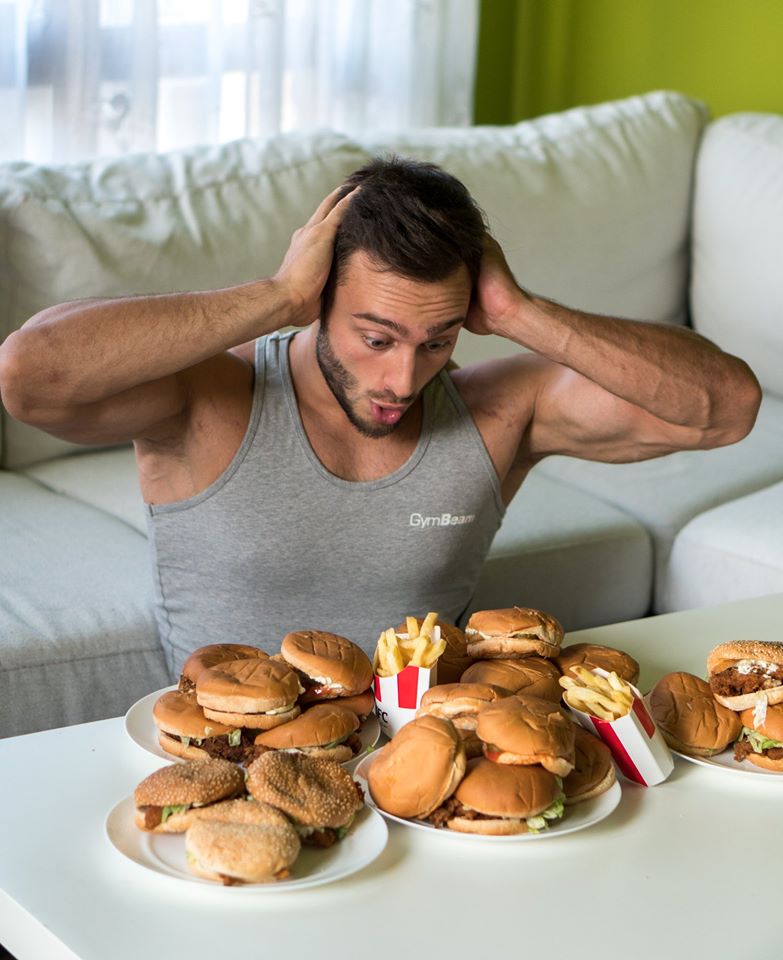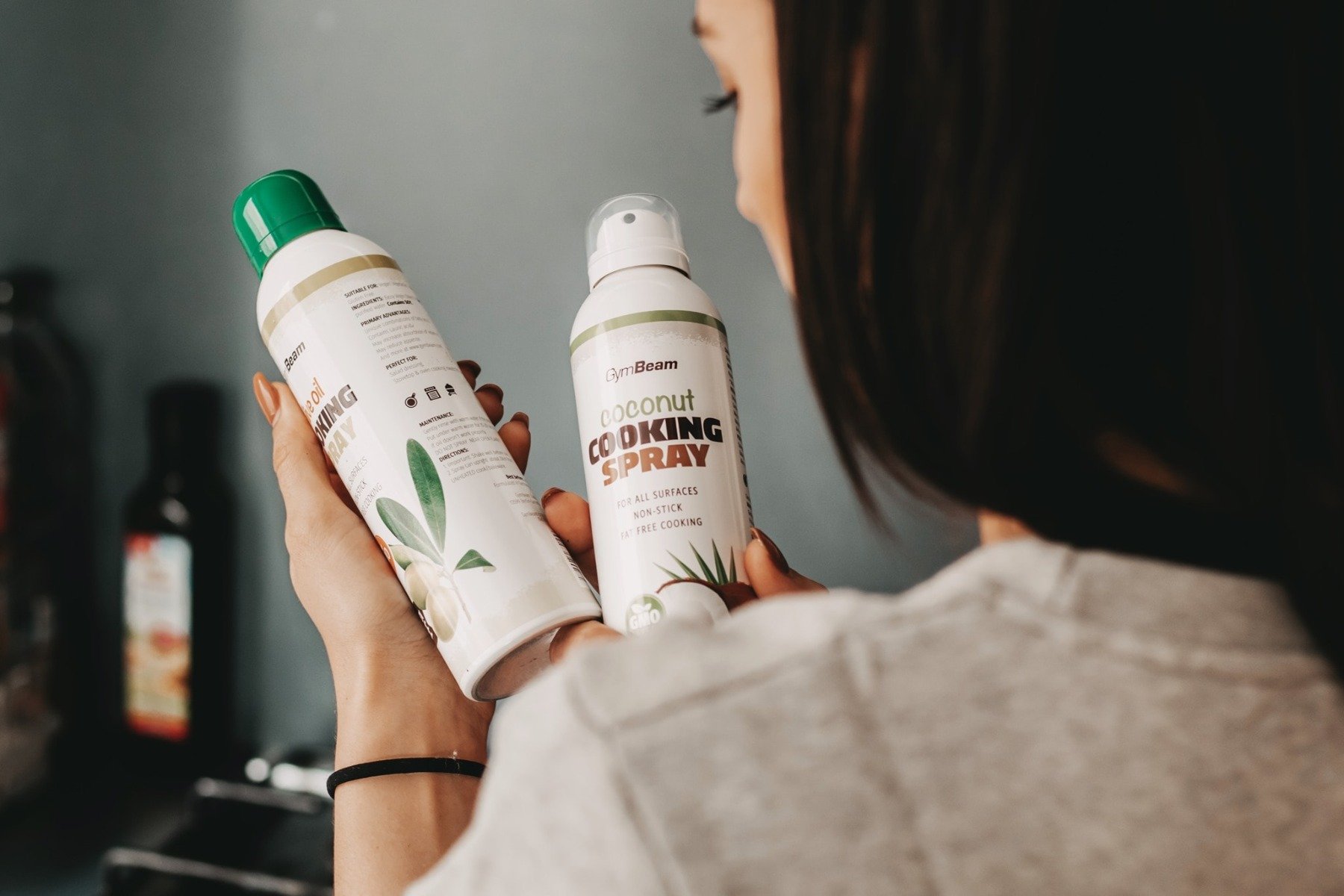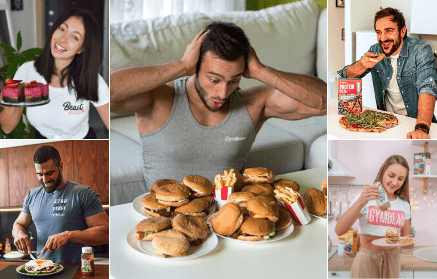Table of Contents
Nobody is really happy from the current quarantine period. Many people face the problem of eating unhealthy or overeating during the quarantine period. What is the cause? Find out with us why we eat more when in quarantine and how to avoid excessive calorie intake during this period.
Emotional eating
The most common reason why we eat is to satisfy our physical hunger and replenish a sufficient amount of energy. However, some people are inclined to eat even in times of discomfort, and with food, they try to reduce stress. Such overeating is called emotional eating. Negative emotions can lead to a feeling of emotional emptiness, and it is food that is considered a way to fill this gap and create a false sense of “fullness” or temporary wholeness. Probably this reason is the most common cause of overeating during the quarantine. During this period, most people feel uncomfortable; they feel pressure, whether from the employer, family, or more challenging to manage a social distance. To suppress these negative emotions, they try to put it away from them with food. [1] [2] [3] [4] [5]
Most often, in a stressful situation, they incline to unhealthy or high-calorie foods and sweets. Unfortunately, in the long run, thanks to emotional eating, you will not feel happy, quite the opposite. Increasing pounds will cause feelings of guilt or even lower your self-confidence. No matter how you feel during quarantine, you don’t have to resort to overeating. If you find out what triggers your emotional hunger, you can avoid unhealthy eating. [1] [2] [3] [4] [5]

Common causes of emotional eating
- Stress – Have you ever noticed that when you are in a stressful situation, you feel like eating? This is not unusual. When in stress, especially if you suffer from chronic stress conditions, your body produces a high amount of the stress hormone – cortisol. It evokes strong appetites for sweet, salty, fried or simply unhealthy foods, which give you immediate energy and cause you pleasure. If you do not manage your stress, you are also more likely to overeat emotionally.
- Fills you with emotions – Eating can be a great way to silence temporarily or “silence” unpleasant feelings, including anger, fear, sadness, anxiety, loneliness, resentment and shame. Even though food is only a temporary solution, it can, to some extent, fill in the empty spaces inside you and thus suppress negative emotions.
- Boredom or feelings of emptiness – Boredom is the most common reason for overeating. In addition, if you feel an emptiness inside, it is usually the food that solves both of these problems. At least that’s what you think. However, once you eat, these feelings will reappear, and you will have no choice but to retreat to the refrigerator.
- Childhood habits – If in childhood, your parents rewarded you with goodness for every cleaning of the room or sweets soothed you after each broken knee; you have likely carried this experience into your adult life. In every tense situation, or after every successful action, you will reach for these rewards as well.
- Social influences – Emotional eating is often associated with social influences. If you are in a group of people who order junk food in a restaurant, you will likely do the same. It’s easy to get carried away by the crowd. At the same time, if you are in a group of people where you do not feel comfortable, you may overeat due to nervousness. [1] [2] [3] [4] [5]
Other factors of emotional eating include:
- withdrawal from social support in times of emotional need
- not participating in activities that might otherwise alleviate stress or grief
- inability to distinguish between physical and emotional hunger

Emotional hunger vs. Physical hunger
People need food to survive. However, in developed countries, we often encounter the problem of not being able to distinguish between physical hunger and emotional hunger. However, there are some tips on how to recognise them and avoid overeating. [1] [2] [3] [6]
Emotional hunger:
- it appears suddenly and requires immediate satisfaction
- cravings for special foods – mostly unhealthy, such as pizza, sweets, burgers
- it often leads to insufficient intake of essential nutrients
- you do not feel satisfied after eating
- you do not feel a feeling of hunger in your stomach, but rather a desire
- it evokes feelings of regret, anger, guilt or shame
Physical hunger:
- appears gradually, may not be satisfied immediately
- it is open to a selection of different foods – you are able to choose a healthy alternative
- when you are full, physical hunger stops
- it does not make you feel bad, on the contrary, it satisfies you and you feel good
You might be interested in these products:
So why do we eat more in tense situations?
Are you interested in why you reach for pizza, crisps or chocolate several times a day in quarantine? If you feel stress or fear, your body requires higher amounts of sugars, carbohydrates and fats to boost your energy quickly. It is unhealthy foods that hide all these macronutrients, which will calm you in times of danger and fear.
What may seem like a satisfactory solution in the short term is becoming a problem in the long run. A comfortable diet where you do not address the quality of nutrients ingested can catch you in a lousy eating cycle, which increases the level of stress, which leads to further overeating and more serious health problems such as overweight, diabetes, depression or chronic anxiety. [5]
During stress, the brain acts as an internal aspirator that pumps a cocktail of stress hormones into our bloodstream. Depending on this, the liver and muscles then release glucose, which supplies your body with energy. Research shows that glucose should be replenished immediately after the release of stress hormones. The more glucose we release in response to stress, the more hungry we will feel after it. As mentioned above, the stress hormone cortisol causes an appetite for unhealthy and sweet foods, which causes excess sugars and fats to accumulate in our body, and we then gain weight. So if you want to lose weight during quarantine or maintain your current weight, the first thing you should focus on is your emotional well-being. [1] [2] [3] [4] [5]

How to avoid unhealthy overeating
Although it seems that overeating in quarantine is simply unavoidable, this is not true. Many people have a lot more time for themselves at home during quarantine, and this needs to be used properly. Try some of the tips from the WHO (World Health Organisation), and you will see that loneliness, stress and fear do not have to go hand in hand with bad eating habits.
Meal planning – the right timing
Meal planning is wildly popular with professional bodybuilders and athletes. It is deliberate management of macronutrient intake overtime to promote health, strengthen performance, muscle mass or ensure weight loss. The timing strategy of food intake depends on how your body copes with individual nutrients in a particular period of time. Thus, poorly chosen food can destroy your efforts to achieve your goals, such as weight loss. Improper eating habits can also be caused by an irregular diet or “starvation”. (Note: Of course, we are not talking about the intermittent hunger strike, which is targeted and deliberately restricts calorie intake. To learn more, read our Complete Guide to Intermittent Starvation). If you don’t eat anything all day, you are likely to resort to unhealthy eating and overeating in the evening. So the solution is not to starve, but to eat regularly, calmly and in smaller portions and at specific intervals.
It is especially important to follow a regular diet even in times of stress when you are more prone to bad eating habits. Once you have your diet under control, your metabolism will increase, and you will achieve a regular caloric intake, which will result in maintaining your weight. [14]
How many times a day you indulge in food is up to you. People who play sports regularly often indulge in 5 to 6 full meals a day. For some, on the other hand, 3 full-value meals and 2 smaller snacks in the form of fruit, vegetables or healthy treats are enough. To find out how much food you need to eat to cover your daily caloric intake, calorie tables or your personal diet diary will help you.
Get to know your eating habits during quarantine – eating diary
Make a list of your eating habits and find out what your most significant problem with overeating is. Write the following essential information on a piece of paper for a few days:
- What did you eat
- When did you eat it?
- Portion size
- Nutritional values of meals
- Feelings and situations that led you to eat
- What is the time interval between individual meals – is it regular?
Use these essential points to find out what your diet looks like. Once you see it on paper, you will realise for yourself how many unnecessary calories you can get in a day. You may find out that you most often eat snacks while watching TV in the evening or during working hours. Pay close attention to how you felt when eating, whether you were stressed, sad or happy. It is essential to know what emotions are driving your emotional hunger, and then think about how to deal with them differently. [13]
Create a shopping list – buy only what you need
Have you ever encountered a situation where you ran into a store and bought every unhealthy thing you saw? We usually have such shopping behaviour at a time when we visit food hungry or without a prepared shopping list. Also, during quarantine, we resort to buying less healthy food, such as sweets, chips or semi-finished products, so that we have something to tweak into the evening movie or simply kill time. To avoid such behaviour, you should prepare a shopping list in advance, which only consists of necessary and nutritionally balanced foods. Take a look at what foods you already have at home so that you don’t buy them more than once and avoid unnecessary waste. Alternatively, try to buy food with a shorter shelf life to escape the night visit of the refrigerator. [7]

Take advantage of food delivery
It is another how way to avoid excessive and unnecessary supplies of unnecessary food. If you resort to online shopping and delivery of food, you can strategically choose in advance the food you really need. You will also avoid the marketing tactics that shopping centres have in store for you. Right at the entrance, discounted goods are usually waiting for you, which you simply cannot resist. When shopping online, you can avoid this trend with a single click and focus on the categories you really need. This is the same principle as if you entered the store with a pre-prepared shopping list, but with one exception. In the e-shop, for example, you can’t catch the smell of fresh sweet treats straight from the oven, which would encourage you to make another purchase in the store. In addition, in times of corona and other quarantine situations, online shopping is a much safer alternative.
Give preference to fresh food
Fresh food hides a full nutritional profile. They have enough substances that our body needs to function correctly. Whether it is fresh vegetables, fruits or animal products, they lack preservatives compared to durable food and therefore have the most nutrients, vitamins and minerals. Frozen or dried fruits and vegetables can have the same effect, although their processing loses excess water, but important substances remain. [7]
Prepare homemade meals
Under normal circumstances, when you go to work, take children to school, or spend time with them out-of-school activities, you have much less time to prepare homemade meals. However, during the quarantine period, most people suddenly have much more time. You can also use it, for example, to prepare tasty homemade dishes and exchange them for restaurant food or semi-finished products. You can find many delicious fitness recipes that you can prepare on the Internet. Also, use your imagination and experiment, for example, with new cooking ingredients. The meal that you prepare yourself will definitely taste better, and also you will make sure that the portion in front of you meets all the criteria of a healthy diet. [7]

Pay attention to the portion size
A healthy and nutritionally balanced diet is the basis for weight maintenance or even weight loss, but it should not be exaggerated. Specifically, as with all other meals, you should be careful about the portion size, which you eat. It is believed that a too-large portion contributes to overeating and unwanted weight gain. Portion control can, therefore, help prevent quarantine overeating. How to do it?
- use a smaller plate
- don’t throw everything at one pile, make piles of individual food on a plate
- use your palm as a measuring cup for individual foods
- if you order food, ask for a half portion
- drink a glass of water before eating – it will fill your stomach and you will eat less
- eat slowly – then it may happen that your food on the plate will increase because you will already feel full
- count calories using calorie charts – so you know how much food you can use [7] [8]
Limit sugar and carbohydrate intake
Sugar and excessive amounts of carbohydrates in the diet are the most common reasons for weight gain and obesity. Each gram of carbohydrates contains up to 4 calories, while many foods, such as bread, pastries, rice, have tens of grams of carbohydrates, which can add several hundred calories. Consuming too many carbohydrates can also negatively affect your blood sugar. This typically serves as a source of energy for your body. However, ingesting too many refined carbohydrates or sugars can cause your blood sugar to rise sharply. The body prevents this increase by making antibodies, thus releasing hormones into the circulation, which serve to reduce it. However, this process causes feelings of fatigue and hunger, which leads to overeating.
The WHO, therefore, recommends that your daily sugar intake consists of only 5% of free sugar, which is approximately 6 teaspoons of refined sugar. It contains a high amount of calories, but no other nutrients, so it has no benefit for the human body. Other sugars ingested should come from fresh food such as fruit or vegetables. [7] [9] You should replace artificial syrups or fresh waters with 100% fresh juices, and you should repel the sweet taste with homemade desserts made from healthy ingredients such as protein. Try replacing refined sugar with natural sweeteners, such as honey, agave syrup, erythritol or xylitol. To learn more about healthy sugar substitutes, read our article Sugar substitutes – which sweetener is best for you?.
Limit fat intake
Excessive fat consumption is associated with the development of many unpleasant diseases, such as diabetes, obesity and cardiovascular problems. However, it is necessary to recognise which fat is truly dangerous for us. We know two types of fats:
- Saturated fatty acids – “Unhealthy” fats – increase the level of LDL “bad” cholesterol
- Unsaturated fatty acids – “Healthy” fats – lower cholesterol
Several studies suggest that consuming high-fat foods may encourage overeating. [15] This is due to the release of the hormone dopamine in our body during the eating of fatty food, which helps control the brain’s reward system and pleasure centres. It is because of this hormone that we simply continue to eat and overeat. [15]
The WHO, therefore, recommends limiting total fat intake to less than 30% of total energy intake, of which a maximum of 10% should come from saturated fats. To achieve this goal, you should, therefore, resort to preparing meals that contain no or only a minimum of fat. Therefore, replace fried foods with grilled, stewed or cooked.
If necessary, use only small amounts of unsaturated oils for cooking, such as rapeseed, olive or sunflower oil. Try to prefer food that contains healthy sources of unsaturated fats, such as fish and nuts. Reduce your intake of food such as red and fatty meats, butter and dairy products high in unhealthy fat, palm oil and ointment.
To find out which food is the right for you, read its nutritional values and composition. If some food does not contain information about its composition, avoid those that are guaranteed to have trans fatty acids, such as fried foods – pine cones, pastries or pizza. These acids can increase the levels of LDL cholesterol, also known as “bad” cholesterol, and can also suppress the levels of high-density lipoproteins (HDL) or “good” cholesterol. [7] [10]

Stay hydrated
The right hydration is essential for maintaining optimal health and proper functioning of organs. Water is also called the “essence of life”, as, without it, one can survive only a few days. You may have already come across the statement: “hunger is disguised thirst”, and to some extent it is true. By maintaining proper hydration, you can avoid overeating. If you get the optimal dose of water into your body, your stomach will feel less pressure. [7] [11]
Remember, however, that the best way to get the necessary dose of liquids into your body is to drink pure water. Besides, if you drink water directly from the tap and prefer it to bottled water, you will also help the environment. However, you should not quench your thirst with sugary drinks. In addition to pure water, which does not contain any calories, fresh fruit and vegetables are also a great source of liquids. If you don’t like pure water, try tasting it with lemon juice, frozen fruit or mint. You should also avoid drinking strong caffeine coffees or teas, which can cause dehydration. [7] [11] You can read more about proper hydration and its benefits in the article Hydration before, during, after training and how to avoid dehydration.

Avoid alcohol, or at least reduce its consumption
Not only is alcohol a narcotic, but it is also full of empty calories and sugars. This means that alcohol causes excessive weight gain, and even more, weakens the immune system. Thus, alcohol consumption, and especially regular consumption, weakens your body’s ability to cope with infectious diseases, including COVID-19. [7]
As alcohol is a psychoactive substance, it can also change your mental state and mood. After ingesting it, you may feel irritated and sad in quarantine, which increases the risk of depression, anxiety, fear, panic and stress. As mentioned above, it is these conditions that cause excessive overeating and poor judgment in food choices. [7] [11] You can read more about the effects of alcohol in the article How does alcohol affect weight loss, muscle regeneration and growth?.
Quarantine and forced home insulation is definitely no walk through the rose garden. However, there is a bit of light in every darkness, so you should make your stay at home as pleasant as possible. Use your free time for self-realisation, do the hobbies that have long attracted you, but due to lack of time you postponed them. Try to improve your cooking skills and expand your portfolio with some new healthy recipes. We believe that you have learned all the necessary information about why we eat much more in quarantine and how to avoid overeating. If you liked the article, support it by sharing.
[1] Emotional Eating and How to Stop It – https://www.helpguide.org/articles/diets/emotional-eating.htm
[2] Timothy J. Legg, PhD, PsyD, CRNP, ACRN, CPH - Emotional Eating: What You Should Know – https://www.healthline.com/health/emotional-eating
[3] Mayo Clinic Staff - Weight loss: Gain control of emotional eating – https://www.mayoclinic.org/healthy-lifestyle/weight-loss/in-depth/weight-loss/art-20047342
[4] Struggling with emotional eating? – https://www.health.harvard.edu/diet-and-weight-loss/struggling-with-emotional-eating
[5] Yvonne H. C. Yau and Marc N. Potenza - Stress and Eating Behaviors – https://www.ncbi.nlm.nih.gov/pmc/articles/PMC4214609/
[6] Dr. Susan Albers, Contributor - Emotional vs. Physical Hunger: 4 Ways to Tell the Difference – https://www.huffpost.com/entry/hunger_b_7168958
[7] WHO - Food and nutrition tips during self-quarantine – http://www.euro.who.int/en/health-topics/health-emergencies/coronavirus-covid-19/novel-coronavirus-2019-ncov-technical-guidance/food-and-nutrition-tips-during-self-quarantine
[8] David Benton - Portion Size: What We Know and What We Need to Know – https://www.ncbi.nlm.nih.gov/pmc/articles/PMC4337741/
[9] Alina Petre, MS, RD - What Is Refined Sugar? – https://www.healthline.com/nutrition/refined-sugar
[10] James J. DiNicolantonio - Good Fats versus Bad Fats: A Comparison of Fatty Acids in the Promotion of Insulin Resistance, Inflammation, and Obesity – https://www.ncbi.nlm.nih.gov/pmc/articles/PMC6140086/
[11] Carolyn J. Strange - Feel Your Best With Water – https://www.webmd.com/food-recipes/features/feel-your-best-with-water#1
[12] Mike Roussell, PhD - Does Alcohol Make You Gain Weight? – https://www.shape.com/weight-loss/tips-plans/ask-diet-doctor-can-you-drink-alcohol-and-still-lose-weight
[13] Improving Your Eating Habits – https://www.cdc.gov/healthyweight/losing_weight/eating_habits.html
[14] Ryan Andrews, MS, MA, RD, RYT, CSCS - All about nutrient timing: Does when you eat really matter? – https://www.precisionnutrition.com/all-about-nutrient-timing
[15] Rolls BJ - Carbohydrates, fats, and satiety. – https://www.ncbi.nlm.nih.gov/pubmed/7900695

